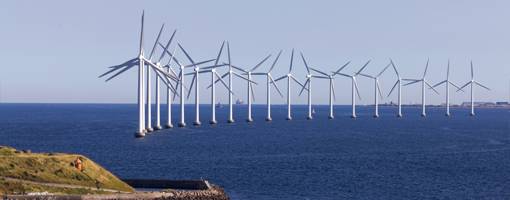A report written by E4tech and Imperial College London and published by Drax Group outlines energy use and sources globally and ranks 25 major world economies on their efforts to transition to clean energy.
The UK tops the list as the fastest decarbonising economy in electricity production, even if it has yet to quite reach its EU emissions target, with Denmark following. Despite consuming the most electricity per year, the US and China (4,250 TWh and 6,500 TWh respectively) also reduced their carbon intensities in 2017 and are placed third and fourth.
Indonesia and Japan are the worst offenders.
The report details many aspects of energy production and uses several metrics that demonstrate progress from different countries. In most, but not all, cases Scandinavia appears to be a global leader. Other areas explored include the rise of clean power and the transition from coal and fossil fuels as an energy source, noting that two-fifths of the world’s electricity still comes from coal. Worryingly the report also notes that European citizens pay out $100 per person per year in fossil fuel subsidies, substantially more than in the US or China. These subsidies are growing in more countries than they are falling.
The report is hopeful about electric vehicles. In ten countries, more than 1 in 50 new vehicles sold are now electric. China is pushing ahead with nearly 1 in 25 new vehicles being electric and Norway is in a league of its own with 1 in 2 new vehicles now electric, thanks to strong subsidies and wealthy consumers. There are now over 4.5 million electric vehicles worldwide. Two-thirds of these are battery EVS, one third are plug-in hybrids. China and the US together have two-thirds of the world’s electric vehicles and half of the 300,000 charging points.
Carbon capture and efficiency are also assessed, with BRICS countries consuming the most energy per $ of output from industry. This is linked to the composition of their industry sectors (i.e. greater manufacturing and mining activity compared to construction and agriculture).
Energy Revolution: A Global Outlook by Dr Iain Staffell, Dr Malte Jansen, Imperial College London; and Adam Chase, Eloise Cotton, Chester Lewis, E4tech.
Full copy here.
Latest News
-
Private health provider awards £10,000 to arthritis research team
-
Building Society hands out £1m to tackle inequality
-
Premier League and Comic Relief partnership aims to improve children’s mental health
-
Russell Hobbs launches food poverty campaign in schools
-
Tottenham Hotspur and charities launch film to tackle mental health stigma
-
Cardfactory funds homelessness charity’s team of psychologists
© 2019 Perspective Publishing Privacy & Cookies







Recent Stories